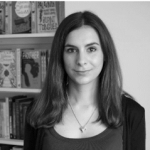Insights from the ‘UCL Careers: Insights into Publishing’ event
By UCL Careers, on 4 January 2019
UCL Careers recently hosted a panel event around getting into publishing and understanding what a role in the industry involves. Here’s what our panellists had to say:
Hannah Ray, Editorial Director at Macmillan Children’s Books‘Editing means different things in different companies. My role as Editorial Director is around 30% creative and 70% business-focused – such as costing and selling strategies. Highlights include having the opportunity to work with both established authors and new talent. Challenges include working to deadlines when there are so many people involved – such as when people get sick and there are many people waiting for the book.’ |
 |
 |
Allie Collins, Editor at Bloomsbury Sport/Freelance Editor‘When you work freelance, you have more control over your own time and projects. Conversely, working in-house means you get to see books through from start-to-finish. Sometimes a challenge as an editor is managing authors’ expectations – such as the design of the front cover – so often you need to act as a mediator.’ |
Tom Atkins, Freelance Proof-readerAs a freelance proof-reader you come in at the end and cast a slow lengthy glance over the proof pages – so you get to work with paper and pencil! It is great if you love spotting flaws – like spelling, punctuation and grammar mistakes and any minor plot inconstancies. Working freelance can be lonely though, and you don’t have guaranteed work or a pension – not to mention that you have to do your own tax returns!’ |
 |
 |
Ella Kahn, Literary Agent at Diamond Kahn and WoodsAs a literary agent you are at the beginning of the process – essentially a manager for authors. You may work with a range of publishing houses – both large and small. You often will meet editors for coffee and lunch to build up a picture of what they are currently looking for in a commission. It is both a sales and editorial role and you have a close relationship with the authors you represent – often being both a nanny and a lawyer for them. You might get over 50 submissions from authors a week, but only take on 1-2 people a year. Highlights include working with authors and championing them to get the recognition they deserve. Challenges are dealing with rejection – on both sides. You have to handle turning people down and getting turned down by publishers.’ |
Top ten tips on getting into publishing
- Have passion: this is a very competitive industry. Everyone’s CV is impressive, so tailor your cover letter and light up when you talk about the industry in your interview. It is not enough to say ‘I love books’ and don’t have an overly romantic view of the industry – there is a lot of business to it such as profit and loss. So show you have negotiation skills and that you can use an Excel spreadsheet. Communication and relationship-building skills are also vital. Show transferable skills.
- Understand the importance of networks: start to meet people now, whether this is professionals or peers also pursuing this industry.
- Do your research: when applying to publishing houses, learn about the books they publish – look at things like Amazon rankings and understand the different genres.
- Ask insightful questions at interviews: good examples include “What is coming out soon?” “Which books are you most excited about publishing in the next year?”.
- Be aware of current trends: Know who the big authors in your genre of interest are.
- Consider taking a job in a department that is not your first choice: once your foot is in the door you might be able to change departments.
- Follow key people on Twitter: try searching hashtags such as: #askagent #askapublisher and #ukya
- Want to work freelance? you might want to start in-house as it is very rare editors will work with freelancers they don’t know. You can start doing freelance work on the side.
- An MA in publishing can be useful: it gives you a great overview of the different areas, but it is not a pre-requisite, as publishing is trying very hard to be inclusive. If you want to do a professional course, ensure it is an industry recognised one.
- Keep going! Be resilient and thick skinned – you will get interviews. Learn from interviews you fail at and ask for feedback and put it into practise.
Want to learn more?
- Visit the myUCLCareers events page for the bios of the speakers.
- You can re-watch the event on the Themed Week archive.
- Find out more about upcoming Themed Week Events.
 Close
Close

